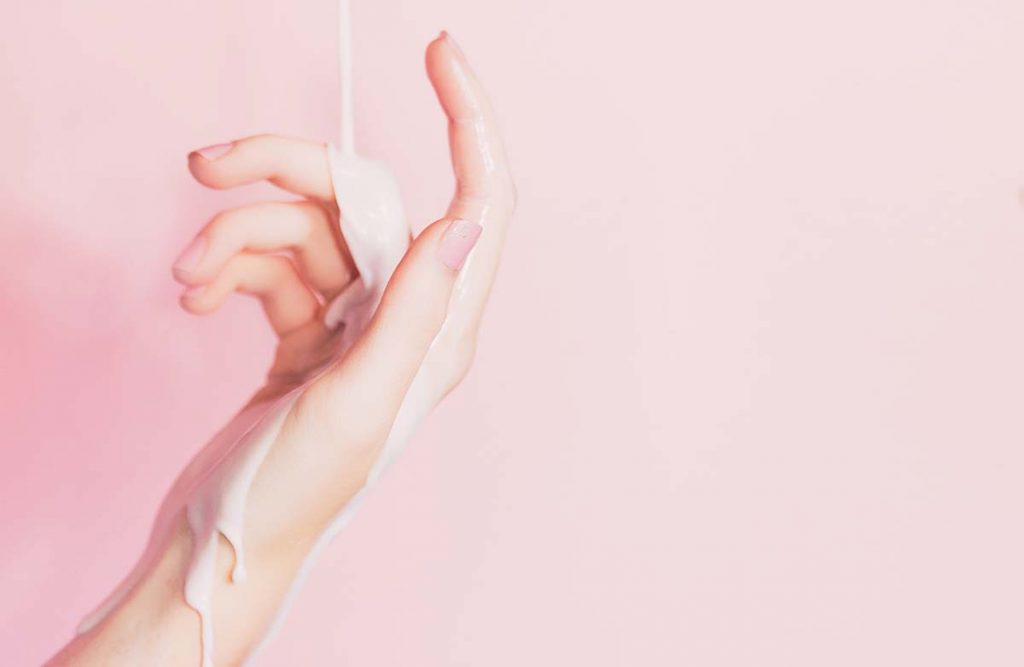By Dr Giulia D’Anna
Breastfeeding really changes the skin as the levels of oestrogen are pumping and fluctuating. Oestrogen is responsible for collagen formation and can have a big impact on hydration too. Most women that are breastfeeding will notice how dry their skin becomes. It is really important to make sure that you keep your water consumption levels at around two litres a day to assist in this department.
Oestrogen can also induce elevated pigmentation levels in the skin, called Melasma. This is hormone-driven, and needs special care. Using a Vitamin C serum can help protect the skin with its potent anti-oxidant properties. I recommend using this every morning right after cleansing. Vitamin C is naturally-occurring, brightens the skin, and evens out your skin tone with continued use.
As a new mum, I am sure that you are washing your hands to keep your baby safe. What this does though, is suck the moisture tight out of your skin, leaving you feeling a little lizard-like. It kind of sounds crazy that using water would dehydrate the skin, but washing hands is usually done with soap or detergents. These detergents remove all the naturally occurring oil on the skin that usually keeps the moisture locked in. So to combat this, moisturise, moisturise and then add some more moisturiser!
When cleansing your skin at night, look for a cleanser that has AHA’s included in the ingredient list. Alpha-hydroxy acids help to remove dead skin cells and other debris from the surface of your skin. They can also assist in reducing hormonal breakouts too.
There are some skincare items that should be avoided, and in particular this is Vitamin A or retinoids.
These are considered the holy grail in anti-ageing ingredients, but are not considered safe during either pregnancy or breast feeding. Usually Vitamin A helps to up-regulate the skin cell cycle and prevents the breakdown of collagen. Vitamin A is linked to birth defects when ingested in high amounts, and although this would not be reached with topical application, it is best to avoid any Vitamin A whilst breastfeeding.
Some women intervene in their skin health with cosmetic injectables, but this is not possible whilst pregnant or breast feeding. To combat the lines that slowly creep in over this time, professional treatments like lactic acid peels are the perfect pick-me-up. Lactic acid peels sound scary, but really they are just a liquid exfoliation. By removing the dead skin cells on the top layers of the skin, all the great products you use on your skin can really soak in and lock in hydration and moisture, as well as encourage the skin cycle to speed up. This makes for radiant skin.
Dr. Giulia D’Anna graduated from the University of Melbourne in 1996. After commencing her own dental practice in 1998, her interest in cosmetic facial procedures led to further training and study within the field of non-surgical cosmetic injectables and dermal science. She now practices in both fields, with expertise in facial rejuvenation and enhancement procedures. Dr Giulia D’Anna is the founder of Idental & Dermal Distinction.

